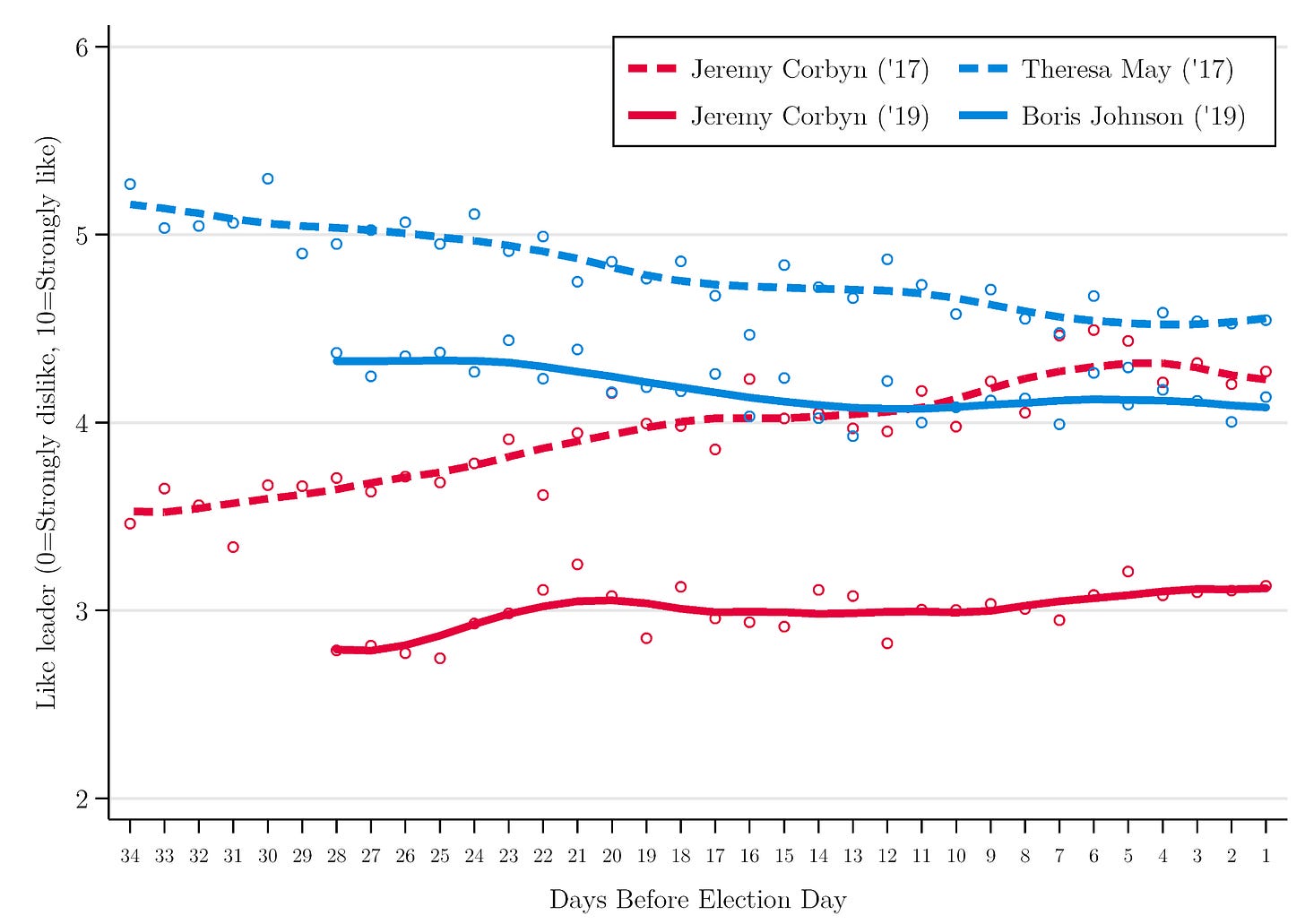Boris Johnson is not as popular as (some) people (still) seem to think...
In select circles there is a belief that Boris Johnson can do no wrong in the eyes of voters, but the data tells a rather different story...
It would be foolish to dismiss the considerable political talents of Boris Johnson or deny his hold, at particular moments in time, over the British electorate. Studies have shown that Johnson’s campaign role was a significant factor in attracting support to the Leave side in the 2016 referendum, while liking him was a strong predictor of voters switching from Labour to the Conservatives in the 2019 general election. In breaking the parliamentary gridlock and ‘getting Brexit done’, Johnson showed his unique ability to bend British politics to his will, though the recent jettisoning of his ‘oven-ready deal’ by Rishi Sunak tells another version of this story.
There is, however, a tendency to overstate the special place that Johnson holds in the hearts of the British public. Perhaps my favourite chart in The British General Election of 2019, because it defies conventional wisdom, shows the ‘likeability’ ratings of Boris Johnson during the 2019 campaign, compared with those for Theresa May in 2017 and Jeremy Corbyn in both elections. It reveals that Johnson’s ratings fell steadily during the 2019 campaign and were, notably, lower at all points than Theresa May in 2017 - despite the very different outcome. Corbyn, on the other hand, was deeply unpopular in 2019 but in 2017 had seen his ratings surge (much like Labour’s poll ratings more generally), so much so that he was better liked at the end of the 2017 campaign than Boris Johnson was in 2019. Johnson had the good luck to fight Corbyn when he had become a hugely toxic and diminished figure.
Johnson did, of course, have periods of relative popularity. As shown in the YouGov polling below, his net approval ratings rose in the early part of his premiership, first thanks to breaking the Brexit deadlock, then due to the rally-round-the-flag effect at the start of the pandemic, peaking with his hospitalisation from Covid-19 in April 2020. There was a second peak in these ratings in early summer of 2021, as the country seemingly felt the worst of the pandemic was behind it, but from that point onward it was downhill.
It is clear that the Owen Paterson affair quickly followed by the partygate revelations in November and December 2021 did huge damage to Johnson’s popularity - even among his Leave supporting base. Over the three months following Paterson and partygate, Johnson’s net approval fell by over twenty points (from -28 to -51). This included a drop of thirty points among Leave voters (from +10 to -23). The fall among Remain voters was somewhat more muted, as so many already disapproved of the PM. By the time Johnson left office, his net approval ratings were just a few points off Jeremy Corbyn’s final ratings (-45 vs. -49, via Ipsos MORI).
In April 2022, pollster James Johnson (no relation!) asked the public what they thought of Boris Johnson. The resulting word cloud - replete with negative, derogatory language - tells a very clear story about how Boris Johnson’s stock had fallen with voters as a result of partygate. Even before partygate Johnson was not considered to be a trustworthy figure, with well over 50% of voters saying he was untrustworthy and less than 30% saying he was trustworthy. ‘Liar’ now was the word most commonly used to describe the PM by the British public.


It would be wrong to assume that the partygate effect was shortlived. Shortly before he left office, YouGov found a remarkable three-quarters (76%) of people saying that Johnson was untrustworthy. Public opinion had only hardened on the trustworthiness of the PM since he became mired in the partygate scandal.
The damage to Boris Johnson’s reputation, primarily due to partygate though not aided by the steadily deteriorating economic conditions, should not be under-estimated. It is surprising, therefore, that his return continues to be mooted by some as a potential solution to the Conservative Party’s polling woes. While the polling shelves are relatively bare in relation to the standing of the former PM since he left office, there is little evidence to suggest the public have significantly changed their minds. Would the Conservatives want a toxic and diminished figure to lead them into the next election? The Labour Party could tell them how that can work out.





